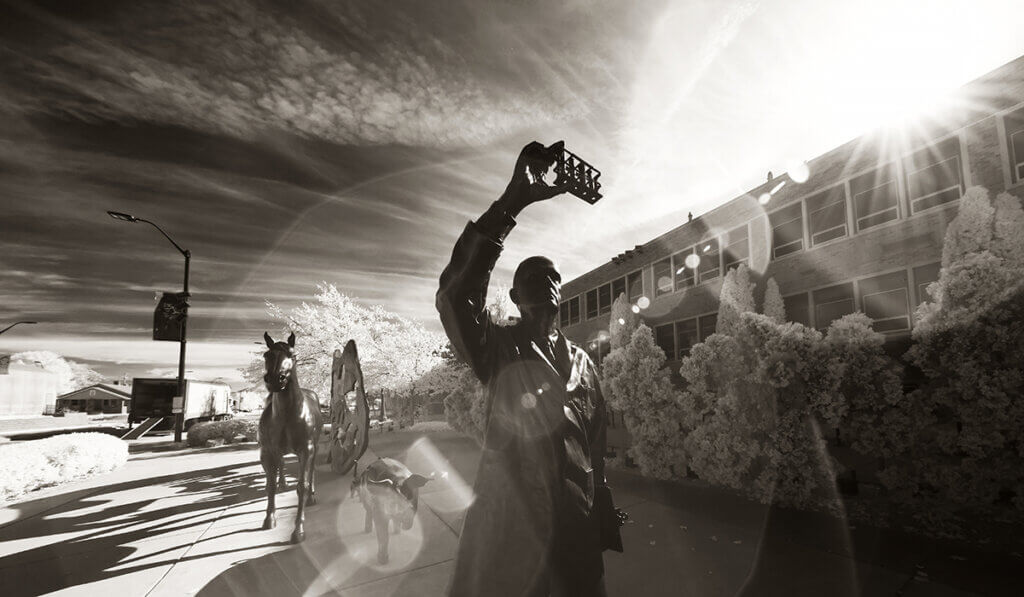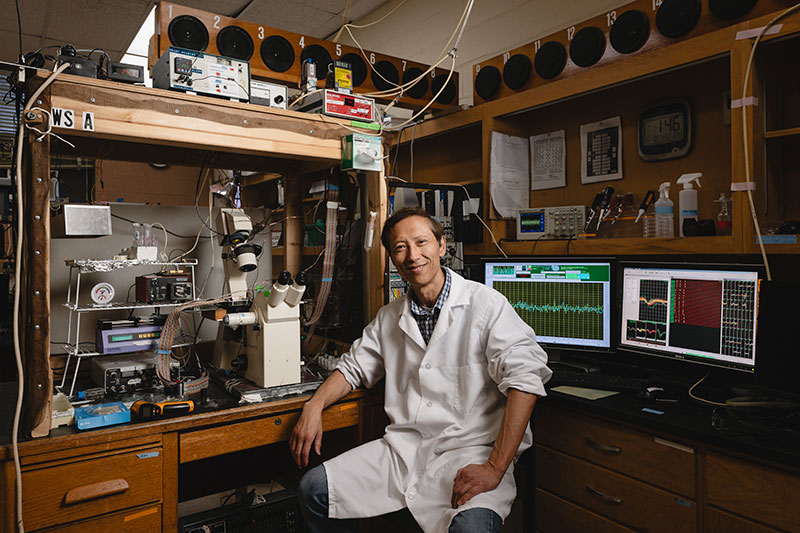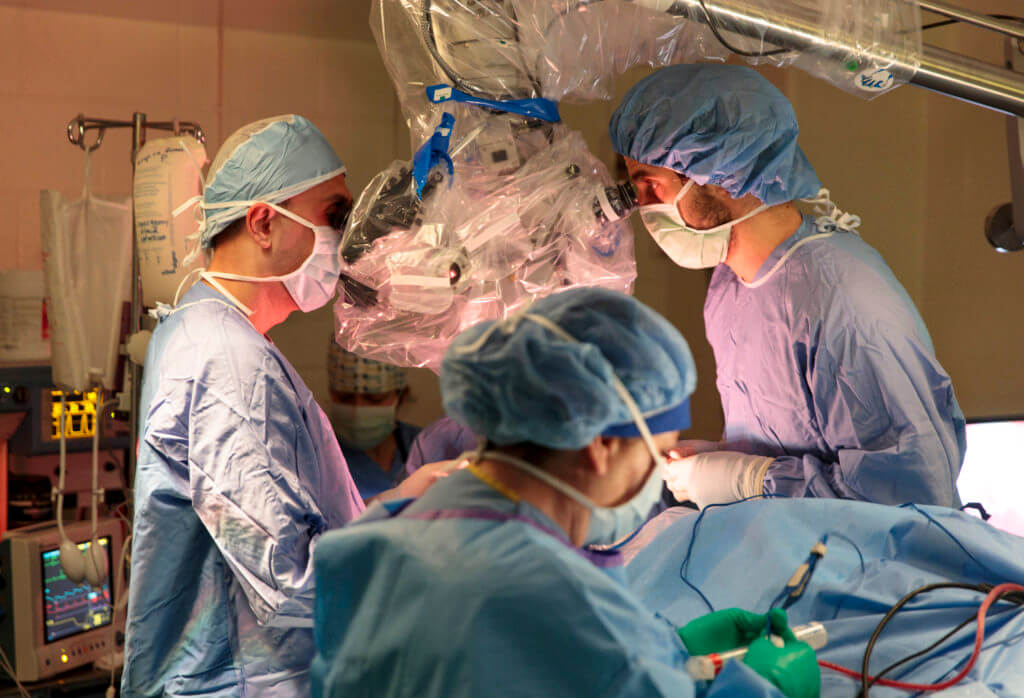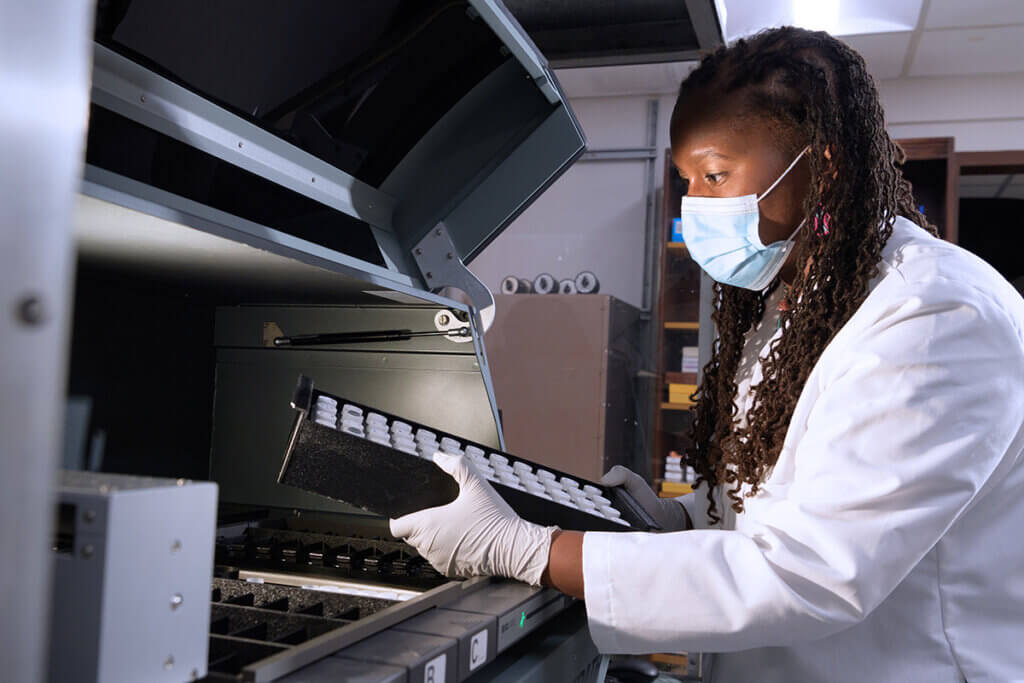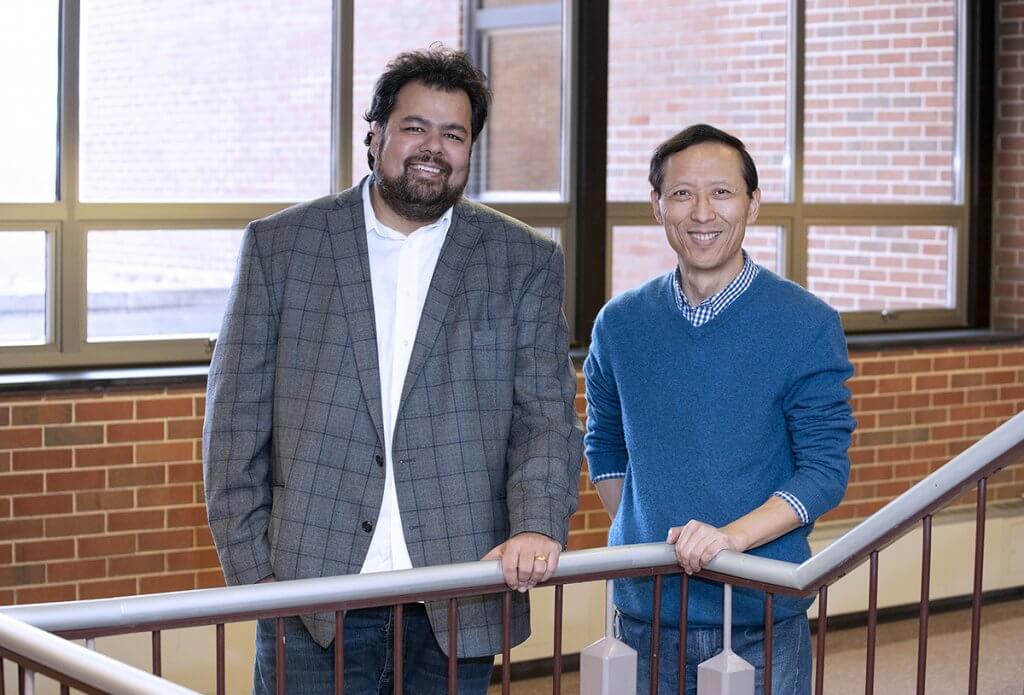Neuroscience
Purdue Researchers Develop a Novel Human Brain Model to Study Alzheimer’s Disease
July 18, 2025
Purdue University College of Veterinary Medicine researchers are taking an innovative approach to studying Alzheimer’s disease. Dr. Ranjie Xu, an assistant professor in the Department of Basic Medical Sciences and a member of the Purdue Institute for Integrative Neuroscience, has developed a sophisticated 3D human mini-brain model to reveal new insights into how the disease progresses and to validate promising new treatments.
Research accomplishments of CPB’s Uma Aryal featured in ASBMB Today Article
February 28, 2025
A recently published article in ASBMB Today, the member magazine of the American Society of Biochemistry and Molecular Biology, details groundbreaking research led by Uma K. Aryal, research associate professor in the Department of Comparative Pathobiology.
Treating Diseases by Eliminating Protein Aggregation in the Brain, Pancreas is Focus of Purdue Study
January 26, 2024
Researchers at Purdue University have taken the first steps to treat Alzheimer’s disease, Parkinson’s disease and Type 2 diabetes by creating multiple patent-pending compounds shown to inhibit protein aggregation associated with those diseases.
PVM Achieves Research Funding Record
December 15, 2023
The Purdue University College of Veterinary Medicine’s research enterprise reached a record level of funding in the most recent fiscal year (2022/2023), exceeding $15 million, which represents an increase of more than 6.5% over the preceding year. About 60% of the college’s research funding comes in the form of grants from the prestigious National Institutes of Health (NIH).
PVM Scholar Utilizes ‘Mini-brain’ to Trace Link between Concussion and Alzheimer’s Disease
September 1, 2023
How much time elapses between a blow to the head and the start of damage associated with Alzheimer’s disease?
A device that makes it possible to track the effects of concussive force on a functioning cluster of brain cells suggests the answer is in hours. The “traumatic brain injury (TBI) on a chip” being developed at Purdue University opens a window into a cause and effect that announces itself with the passage of decades but is exceedingly difficult to trace back to its origins.
Dr. Timothy Bentley: Neurosurgeon, Researcher & Veterinarian Enjoys New Challenges
December 16, 2021
From a small farm near Liverpool, England, to a renowned researcher, Dr. Timothy Bentley thrives on better understanding the canine brain. And, as the Director of the Canine Brain Tumor Research Program at Purdue University in Indiana and one of Veterinarianedu.org’s “15 Most Influential Veterinarians,” he’s definitely one to know. Read the whole story at […]
PVM Scholar Leads Groundbreaking Study of How the Brain’s Own Protective System Could Help Advance Treatment of Neurodegenerative Conditions
August 13, 2021
A labyrinthian network of blood vessels helps to maintain normal health by protecting the human brain from foreign contaminants. Unfortunately, this natural protection comes with a cost: While the maze keeps the brain safe, it is also an obstacle when treating brain damage or disease. Finding ways through the network could mean a drastic improvement in quality of life.
Dr. Tiffany Lyle, assistant professor of veterinary anatomic pathology in the Purdue University College of Veterinary Medicine’s Department of Comparative Pathobiology and a member of Purdue’s Center for Cancer Research, is on a mission to do just that. She is the first scientist to map changes to the brain’s barrier during metastases of lung cancer and, more recently, she has produced the first comprehensive, molecular mapping of the network in relation to blast-induced traumatic brain injuries.
Indiana Fund’s Commercialization Award Supports Promising Technology Based on Work of PVM Faculty Member Riyi Shi
June 18, 2021
Technology related to the research of Purdue Veterinary Medicine neuroscientist Riyi Shi has received major new support as a means of providing new options for patients with neurological disease and pain.
Neuroscience Seminar Highlights Technologies for Brain Injuries, Vaccine Developments
April 2, 2021
The same technology that helps treat traumatic brain injuries in athletes and soldiers may one day help doctors determine the effectiveness of vaccines on patients. This technology is among the neuroscience innovations and research in the spotlight as the Purdue University Center for Paralysis Research and Plexon Neurotechnology Systems present the Seminar for Neurotrauma and Diseases. The seminar series, which runs through April, features speakers from Purdue, Harvard Medical School, and the medical industry.
Purdue Innovators, Including Dr. Riyi Shi, Receive $1.3 Million Grant for Traumatic Brain Injury, Alzheimer’s Research
July 24, 2020
A team of Purdue University scholars led by professors from the Colleges of Science and Veterinary Medicine have received new support as they work to develop solutions to what U.S. military officials call an alarming trend in dementia among wounded soldiers. The same researchers also seek solutions to better treat Alzheimer’s disease. Innovators from several disciplines across the university make-up the Purdue research team that received a $1.3 million grant from the Department of Defense for their work in this area.




